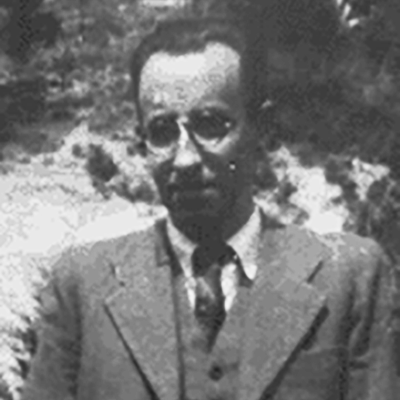Màrius Torres
(Nou diccionari 62 de la literatura catalana)
He studied Medicine at the University of Barcelona and, having completed his studies, travelled through France and Italy in 1933. He was captivated by both countries and especially by the city of Florence. He worked for only a short time in Lleida as he very soon (1935) fell ill with tuberculosis and was admitted to the sanatorium of Puig d'Olena, where he was to die seven years later. Son of the doctor, politician and maven of metempsychosis Humbert Torres, he was educated from an early age, on the one hand in Catalan republicanism and, on the other, in a spiritualist conception of existence, which greatly influenced his lyrical work.
Lleida, 1910 - Puig d'Olena, Sant Quirze de Safaja, 1942. Poet
Apart from some pieces published in the press, a number of stories and a play (Una fantasma com n'hi ha poques [A Most Unusual Ghost]), which he unsuccessfully presented for the 1935 Ignasi Iglésias Prize for Theatre, Torres' literary output was confined to poetry, mostly written in the years of his confinement in the Puig d'Olena sanatorium – where he coincided with Mercè Figueras, the "Mahalta" of many of his poems – although in 1935 he had, also unsuccessfully, presented a selection of poems titled Invencions [Inventions] for the Joaquim Folguera Prize.
The outbreak of the Civil War and the immediate post-war years, along with Torres' premature death, conditioned the reception of his work since it was not until 1947 – and, even then, in Mexico – that the volume Poesies [Poems] was published. His personal circumstances with an illness that would irrevocably end in death and the disheartening collective situation – Civil War and defeat – heightened the poet's solitude, determining the reflective nature of his poetry which, in the words of Carles Riba, "always springs from crisis". Riba (with whom Torres corresponded), along with Verlaine or Baudelaire, with whom he shared a taste for musicality, are some of the influences in his poetry, which draws on into the symbolist tradition achieving great purity and essentialism in its quest for the meaning of existence.
His themes – solitude, friendship, love, awareness of time, death, transcendence, the beauty of the world, music identified with life – are dwelled upon with great formal exigency that takes in both the classical form of the sonnet and wide-ranging strophic experimentation, even with the tanka.
Besides the different editions of Poesies, another work, Cartes a Màrius Torres [Letters to Marius Torres], was published by Joan Sales in 1967, this consisting of a collection of letters he exchanged with the Lleida poet.
Copyright © 2000 Edicions 62




